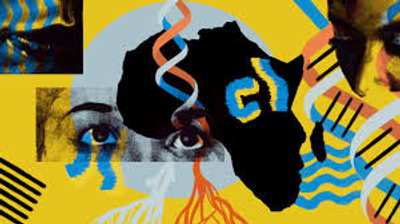
Worldreader Pushes Digital Literacy in Sub-Saharan Africa by Aida Akl – Mobile technology has put digital books in the hands of people in developing regions who otherwise have limited reading resources. But millions of schoolchildren in places like Africa still have few or no books to help them develop reading and writing skills. Worldreader aims to change that.
Focusing mainly on Sub-Saharan Africa, Worldreader is a non-profit group dedicated to increasing literacy, educational outcomes and positive perceptions of reading in developing countries. Its library is available in 43 languages and 69 countries, including India, as well as the Americas.
“Readers access a library of over 30,000 – actually, currently it’s 31,000 digital books on e-readers or mobile phones,” said Worldreader’s Director of Content Danielle Zacarias in an interview.
The library is accessible on the Web and via an e-reader mobile app, available globally.
In 2013, Worldreader Mobile had, on average, 335,000 active readers each month who collectively completed 657,475 books and stories.
Worldreader also targets schools and libraries, where reach is limited but more impactful. Content is localized to target different regions and languages. So “Kenya would have much more content than the U.S. relating to their languages, for example,” said Zacarias. “And the reason is because … our key focus areas are Sub-Saharan Africa.”
While most of the library’s content is in English and French, Zacarias said the next biggest language on e-readers in schools and libraries in the region is Swahili. “And Swahili books are fairly popular in that region.”
Sub-Saharan African schools are often lacking in infrastructure and sanitation, not to mention books. In many cases, only one textbook is available for two or more students to share, according to the United Nations Educational, Scientific and Cultural Organization (UNESCO). About 153 million adults in Sub-Saharan Africa lack basic literacy and math skills. Women account for more than 60 percent of the region’s illiterate population.
While there is little raw data to determine what people are reading on Worldreader, romance is high on the list. But the genre is often poorly-understood or downgraded in public perception because “it is female writing,” even though it “does capture some of the female experiences that are not captured elsewhere.”
“People kind of snub their noses at romance – it’s not proper fiction,” said Zacarias. “And it’s one of the few places you can find stories told from a woman’s perspective, like love stories told from a woman’s perspective.”
Depending on availability and current interest, health and sexual health books are also popular. Health topics “spiked tremendously” in West Africa during last year’s Ebola outbreak. And Zacarias suggested that the popularity of a book about malaria might reflect Sub-Saharan Africa’s continued problems with the disease.
Books about sexual health might not even be available in some markets. Zacarias said readers might be reluctant to check out this type of material at a public library – assuming they have a public library – and more inclined to access them in private on their mobile device.
But Zacarias is less concerned with what people are reading than with the fact that they are reading at all. Read more (Credit: Voice of America News)


